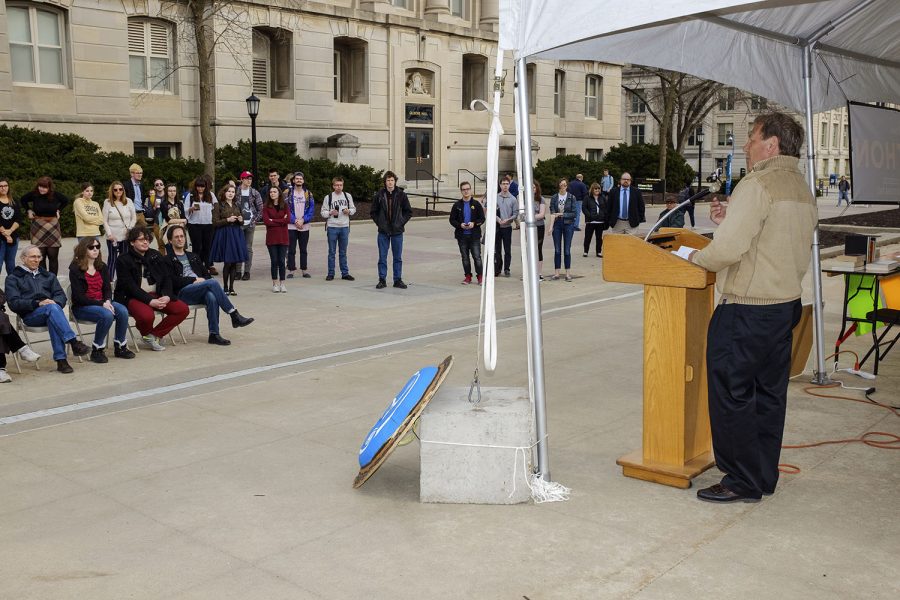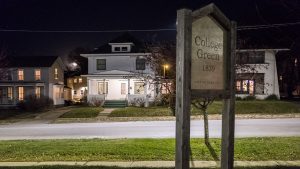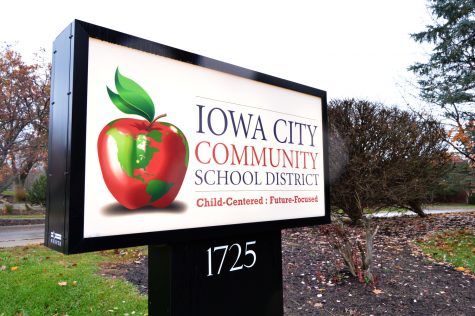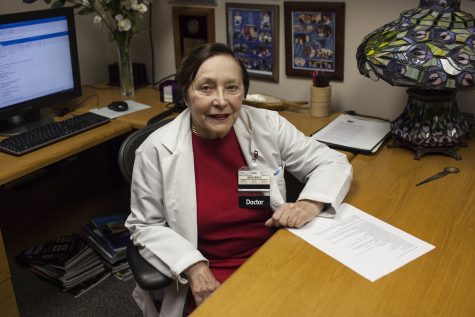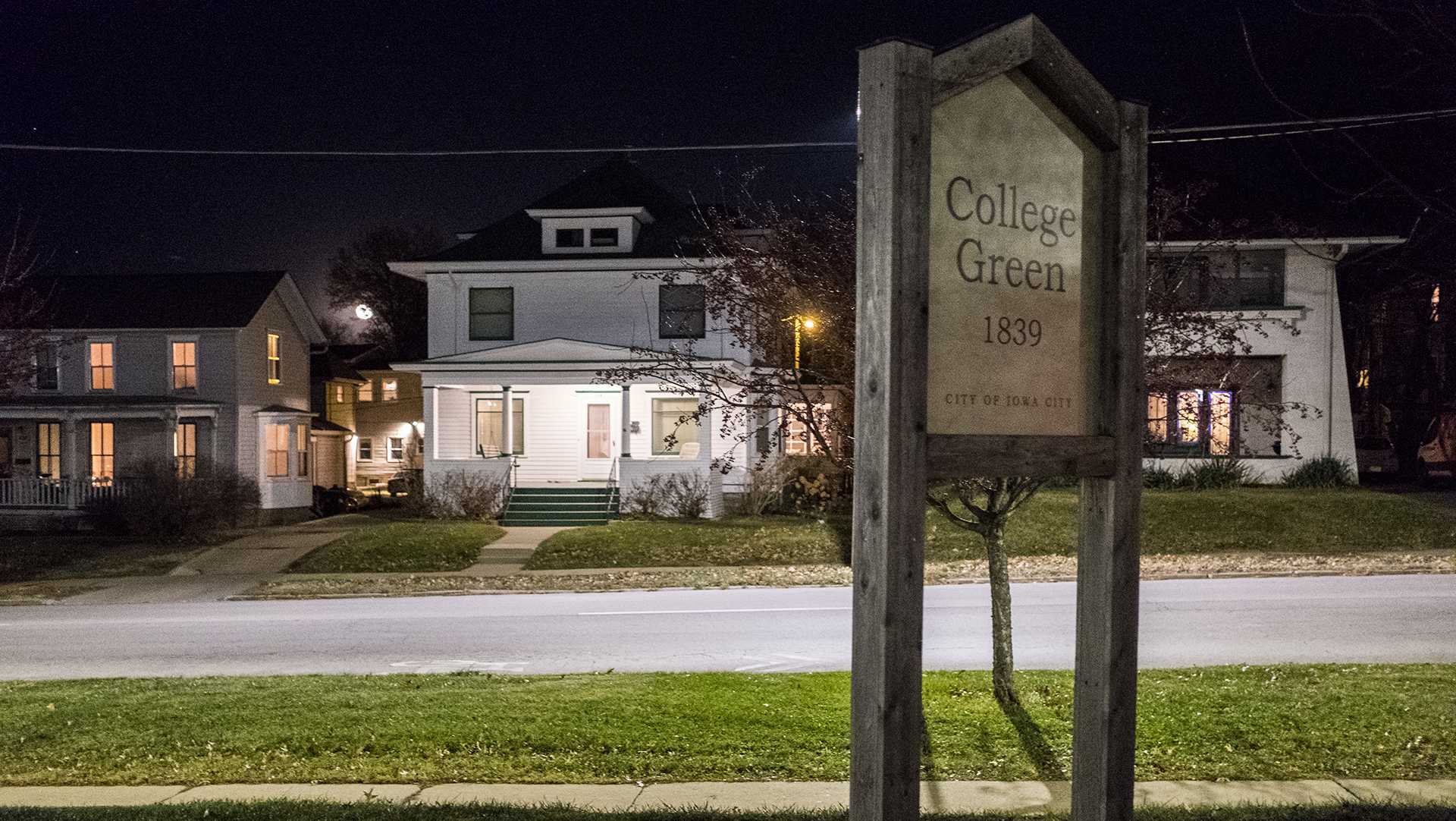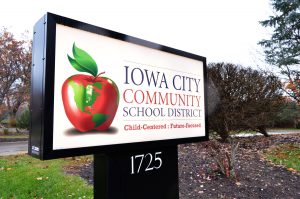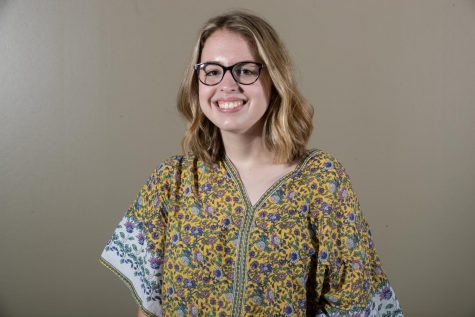UI’s Homerathon brings Ancient Greek traditions to Iowa City
Students, faculty, and community members gathered to read Homer’s The Iliad< for 24-hours straight on the Cleary Walkway.
UI President Bruce Harreld speaks during the Homerathon on the T. Anne Cleary Walkway on Wednesday.
March 27, 2019
An ancient tradition is being kept alive in Iowa City, when on Wednesday more than 80 people volunteered to read Homer’s The Iliad aloud for 24 hours.
The University of Iowa’s annual Homerathon, sponsored by the Classics Department and classics Honor Society Eta Sigma Phi, began at 5 p.m. Wednesday on the Cleary Walkway, with UI President Bruce Harreld as the opening act.
He emphasized the importance of classics as one of the first four departments founded at the UI.
“We have a tremendous affinity and affiliation with the classics, and I’m here to celebrate that legacy at the UI,” he said.
Harreld said Homerathon helps to recreate the tradition of reading poetry aloud, saying classics inform many basic principles of humanity and society.
“Some of those classics, they were passed down by the spoken words like we’re going to do today. Now, more recently, it’s you reading individually,” Harreld said. “I think maybe we’ve lost something, so we’re trying to bring a little bit of that tradition back. This is the way it was originally conveyed.”
Other prominent readers included Iowa City Mayor Jim Throgmorton and classics Adjunct Professor Peter Green. Students signed up to read Homer through the dead of night. Organizers plan to move to reading The Odyssey if The Iliad is completed before 24 hours are up.
Rosemary Moore, a lecturer in both the History and Classics Departments, said The Iliad was likely not written by a single person but composed orally over centuries.
“Homer wrote poetry. It was meant to be spoken, and it was meant to be heard,” she said. “We don’t actually know if there was any one person named Homer. We give that name — there’s a long tradition of that — to this person that’s said to have written the Iliad and the Odyssey. But both of those poems were composed orally over centuries.”
RELATED: UI religious-studies professor assists in History Channel docu-series ‘Jesus: His Life’
Moore said Homerathons have gained popularity in the past 10 years and occur at other universities.
“When I think about Homer, for a lot of people in this field, [it’s] something very close to our hearts,” she said. “What I am finding out through a pretty big range of people who are participating is that Homer’s works are important to them, too, and that’s something we’d like to share. There’s a reason they are still being read today.”
Classics Lecturer Debra Trusty said the tradition of reading poetry aloud could date back 4,000 to 5,000 years. She teaches classical mythology, in which students learn the concepts of Ancient Greek society through the works of Homer.
“It would have been nice to maybe have a lyre in the background strumming along with it, because it was meant to be almost sung as well as recited, but we don’t have that, so this will be good enough,” she said.
Eta Sigma Phi member Callie Todhunter said hearing Homer read aloud resonates with students of classiscs and nonclassiscs alike.
“It’s important for us as classicists, because you can read it in the language and appreciate the beauty of it, but really, no matter who you are, no matter what your discipline is in a university, you’re going to ultimately come back to the classics,” Todhunter said. “For me, it’s a really beautiful text, and I love reading it.”
Caleb McCullough contributed to the reporting of this article.



